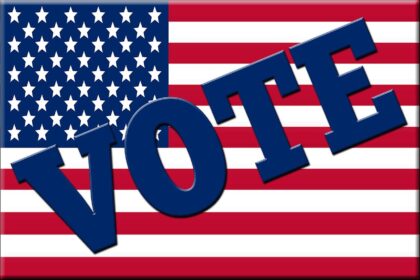Minister’s Message
As things start moving faster toward Election Day in November, and especially with our own Governor Tim Walz now one candidate for VP, it seems like a good time to talk about what we, as a congregation, can and cannot do and say with regard to politics. (Disclaimer: I am not a lawyer and this is not legal advice.)
What we cannot do without jeopardizing our tax-exempt status is actually fairly clear: we cannot advocate for or against a particular candidate or party. (Yes, there are religious organizations that violate this rule. It doesn’t necessarily mean we should, though that is an active discussion among some UU clergy.)
What we absolutely can do is “issue advocacy”—talking about how our values intersect with various issues. We can say, for example, that our values are consistent with protections for all people including transgender people and immigrants and those with disabilities. We can talk about how proposed legislation does or does not align with our values. We can also advocate for people to register to vote and then to vote—as we are doing with our postcards to voters campaign. And don’t forget to vote in the Minnesota primary next Tuesday, August 13th!
As individuals, we can celebrate when we feel hope, name when we feel fear, and talk with each other about candidates as well as issues. Even I, as a minister, am free to do that—when I am acting as an individual and not as a representative of this congregation. I can put up a yard sign at home, post on my social media, even volunteer for a campaign. So can you, and I hope you will do as much as you can for candidates and issues you believe in.
As a congregation, though, we should not unintentionally cross the line between issue advocacy and partisan activity. If we were to decide together that we needed to risk losing our tax-exempt status in defense of our democracy, that’s a different conversation.
I also want us to avoid the error of assuming that everyone in our congregation (or any congregation), including guests, agrees about all political topics. Let’s be sure that while we speak clearly about our values, we do so in a way that assumes someone listening may disagree, and acknowledges the humanity and inherent worthiness of all people.
If you want to dive deeper into the ins and outs of churches and elections, here is a link to information shared by the UUA in 2016:
https://www.uua.org/justice-programs/realrules
Together, we can live our belief in the democratic process, and work for the world we want to live in, the world we want to co-create.
In gratitude,
Rev. Diana

